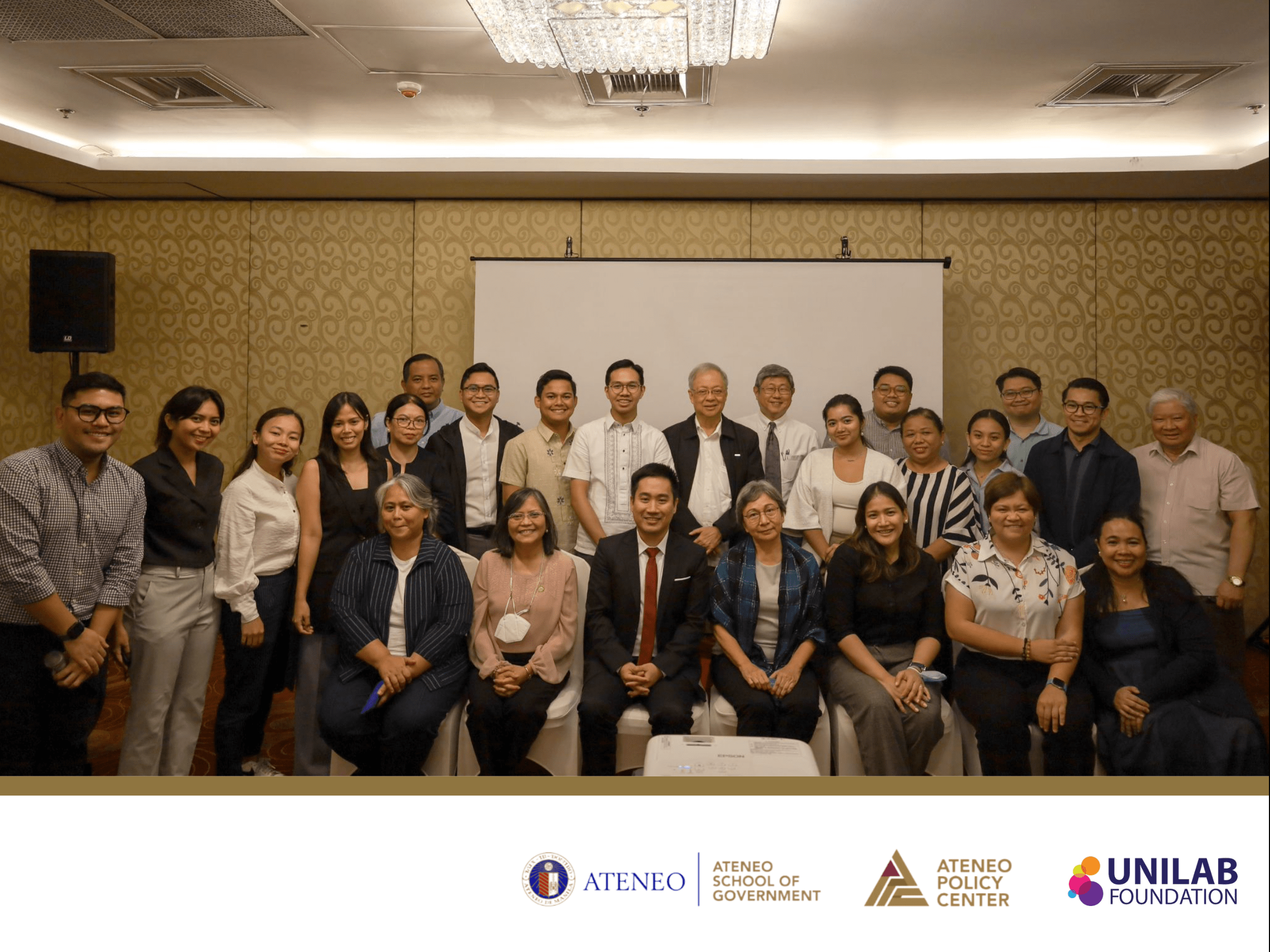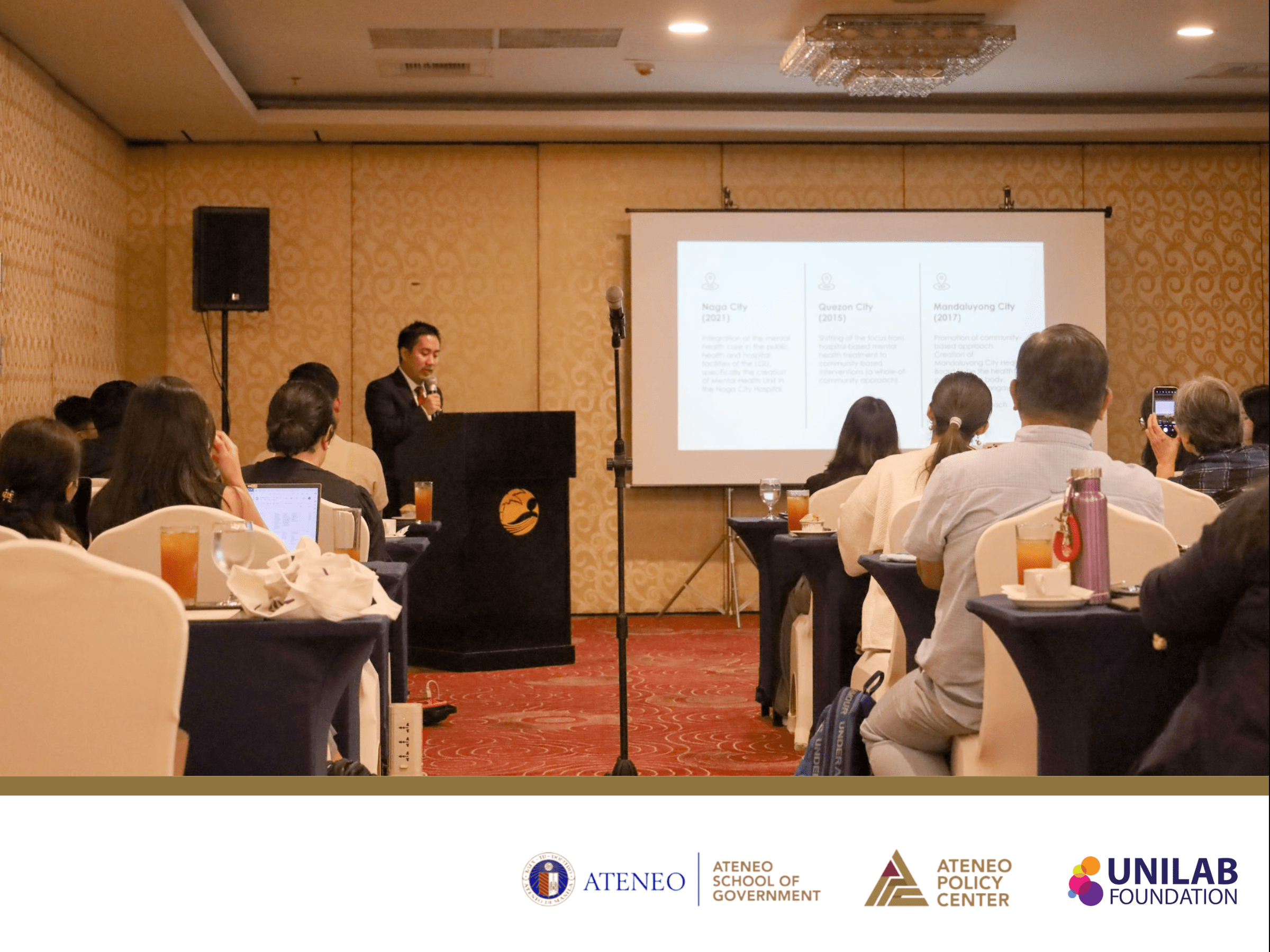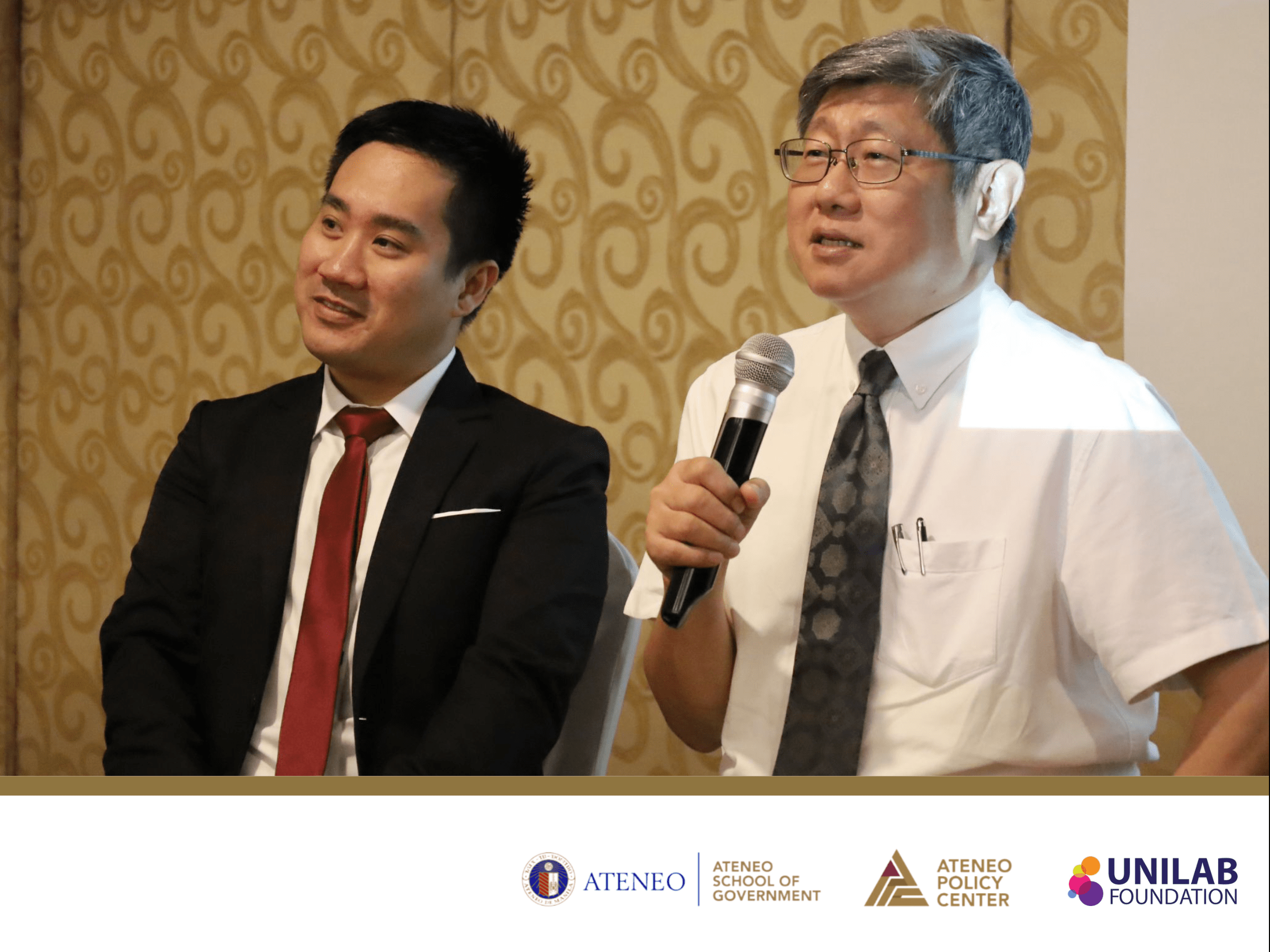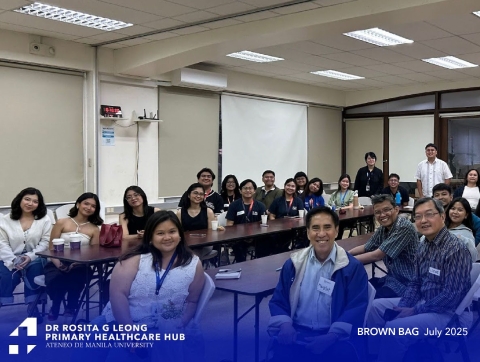Ateneo School of Government and Unilab Foundation present study on Policy Challenges on Mental Health in the Philippines
27 May 2024

The Ateneo School of Government, through the Ateneo Policy Center (APC), and the Unilab Foundation co-organized a Brown Bag Session on “Mental Health in the Philippines: A Policy Challenge” last 21 May 2024 at the Ace Hotel and Suites, Pasig City. The study aimed to examine the implementation of Republic Act 11036 or the Mental Health Act of the Philippines, identifying its developments and challenges. It delves into the role of local government units as primary drivers of enforcing the law in their respective localities, highlighting the accomplishments, and identifying gaps in implementation.

Atty. Michael Dela Peña, Chief of Public Policy, Research, and Innovation at the Unilab Foundation, reported progress on national and local mental health plans, policies, and ordinances since the passage of the Mental Health Act. However, significant legal and administrative obstacles were found, such as statutory discrepancies in a devolved health system and unclear guidelines for delivering community-based care. Consequently, these issues have contributed to challenges in implementation, including the weak political will and commitment from policy and political leaders, and the substantial shortage of mental health personnel.

The presentation stimulated a vibrant forum with representatives from public and private sectors, including those from government, healthcare, academia, and civil society, who shared personal experiences, rich insights, and sound recommendations for advancing the Mental Health Act in the Philippines.
Participants emphasized the high cost and poor accessibility of mental health services in the country, and the stigma that persists within peers and communities despite the increasing awareness. Subsequently, the importance of including patients in the planning was raised, stressing the need to refrain from talking about the patient without the patient. Leveraging the power of their stories was also highlighted, drawing from the successes of the National Integrated Cancer Control Act (NICCA).
Moreover, participants called for a ‘whole-of-society’ approach to mental health care. Besides building the capacity of local government units, families, schools, churches, and workplaces should also be empowered to facilitate community-based care. Representatives from the health sector further emphasized the importance of integrating mental health in primary care vis-a-vis the Universal Health Care (UHC) Law.





